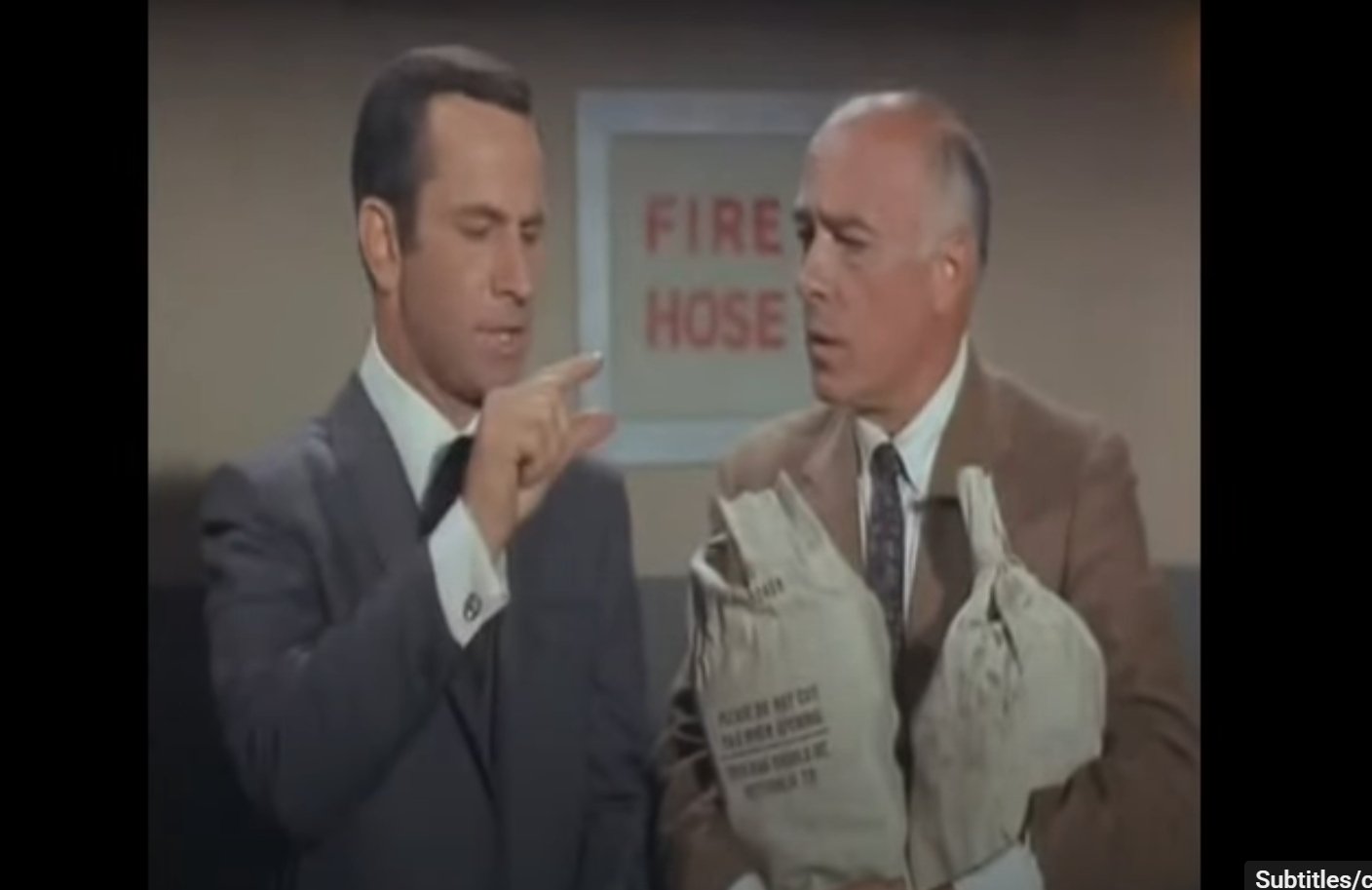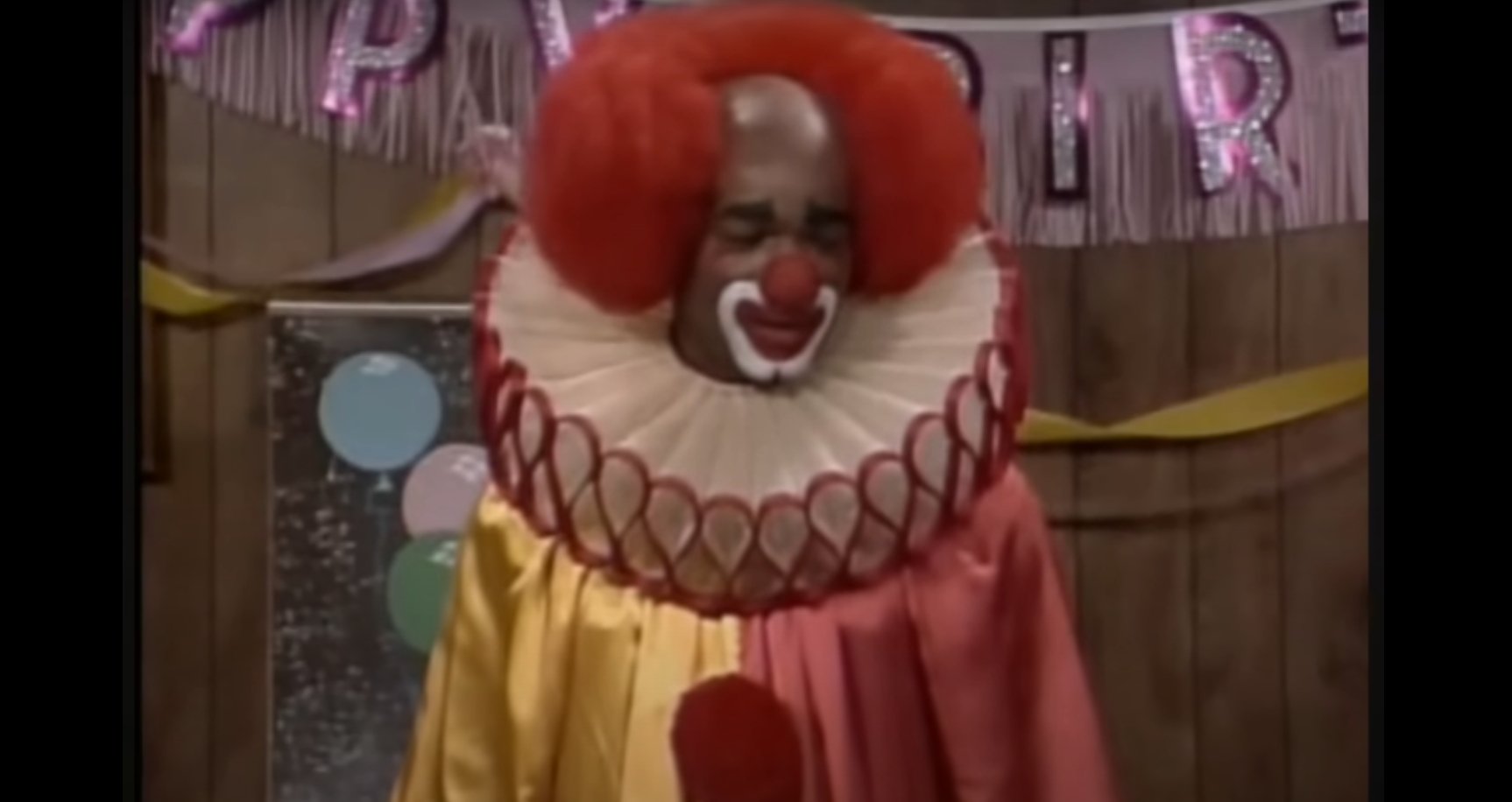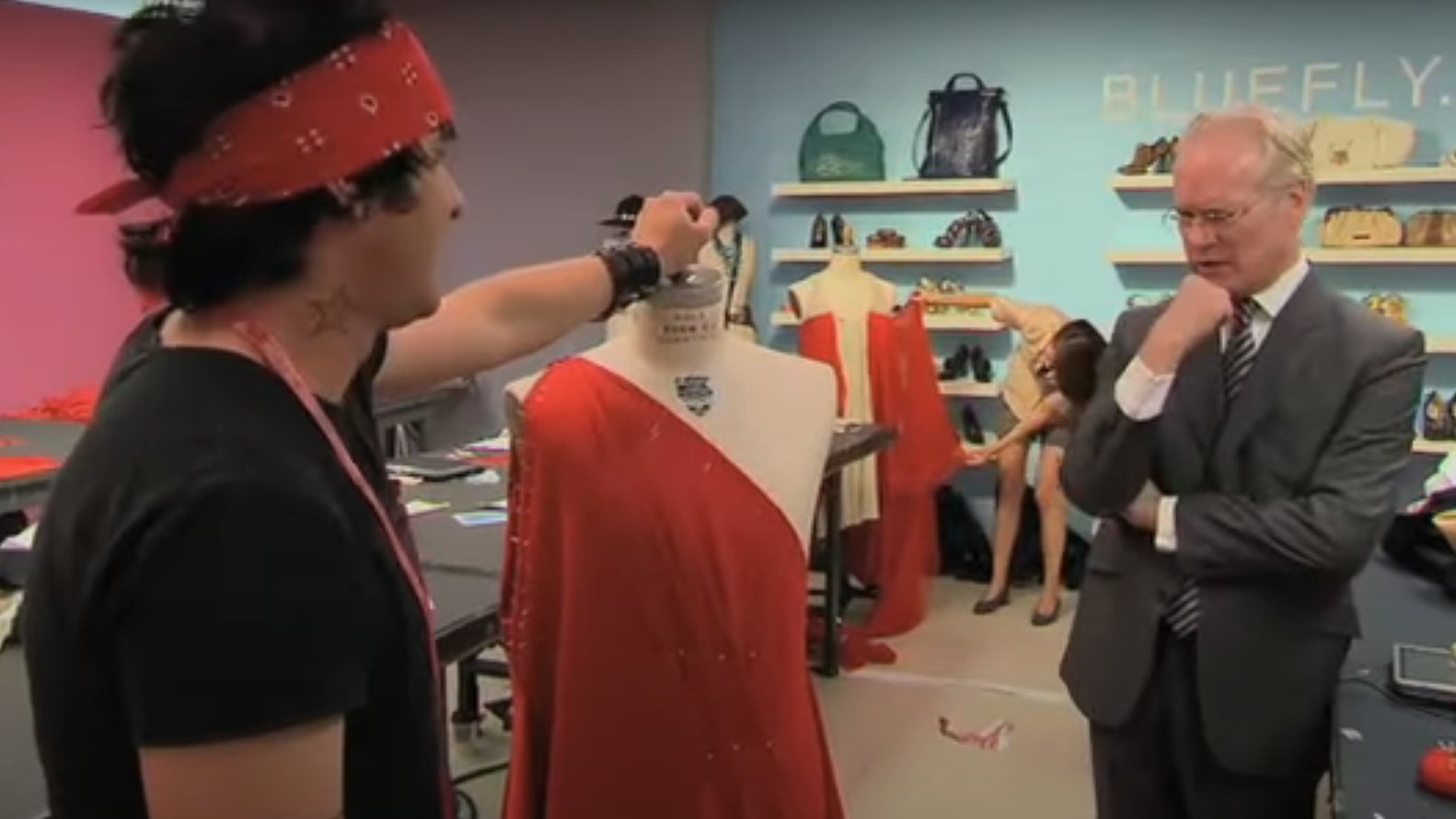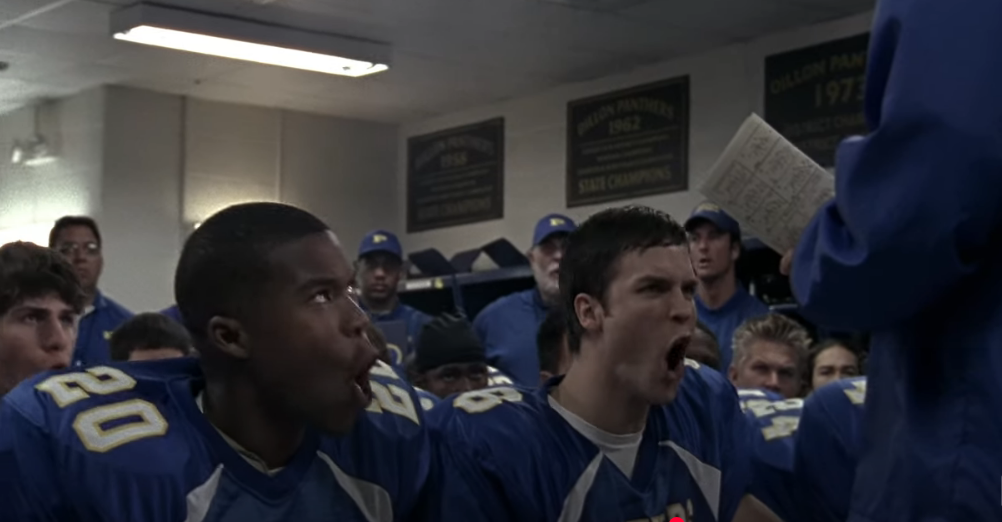Television has done something sneaky to our brains. Those perfectly crafted one-liners that defined our favorite characters have quietly infiltrated our everyday speech, sometimes turning us into unwitting tribute acts.
Think about it: how many times have you reflexively responded to someone with a phrase that felt perfectly natural in the moment, only to realize later (if at all) that you were channeling a fictional character? It’s everywhere—in our texts, our office banter, our family conversations. We’ve absorbed these verbal tics so completely that they’ve become part of our authentic selves.
And more than anything, these one-liners have become a form of cultural shorthand that instantly signals belonging, creates connections with strangers, and establishes common ground across generations. Drop the right reference at the right moment, and suddenly you’re speaking the same language as someone you’ve never met.
So, whether you’re a self-proclaimed TV aficionado or someone who just enjoys a good quote, you’re about to discover how many iconic lines have been secretly living rent-free in your vocabulary.
“D’oh!”

If Homer Simpson from The Simpsons (1989-present) had a nickel for every time he aggressively said D’oh!, he would be able to quit his job by now — and considering there are YouTube compilations of his outbursts stretching over four minutes, that’s no exaggeration. Many of us are perhaps guilty of subconsciously using this familiar catchphrase when things go sideways in that particularly Homer-esque way.
“Whatchu talkin’ ’bout Willis?”

This line, frequently uttered by the adorable Arnold Jackson (Gary Coleman) on the show Diff’rent Strokes (1978-1986), in a tone of utter confusion and incredulity, is a timeless one. The popularity of Watchu talkin’ ’bout, Willis? extended far beyond fans of Diff’rent Strokes, though.
The catchphrase became so well-known in pop culture that even people who had never watched an episode of the show were familiar with it. It has since been referenced and parodied extensively in other TV shows, movies, and memes.
“Yada, yada, yada”

The phrase yada yada yada seems to have multiple origins. Some say it is derived from the British word yatter, which means chatter, while others trace it back to a 1947 Broadway musical titled Allegro.
There’s no denying that comedian Lenny Bruce was the first to popularize it in his comedy bit titled Father Flotsky’s Triumph (1961), but what really brought the catchphrase new meaning was, you guessed it – Seinfeld (1989-1998). Director Andy Ackerman, who rightly wondered why no other sitcom had done it before, dedicated a whole episode to the exclamation (Season 8, Episode 19), with many characters in the show resorting to using it.
“Did I do that?”

Steve Urkel’s sheepishly articulated catchphrase from the American sitcom, Family Matters (1989-1998), after doing something particularly goofy and clumsy, became so popular with audiences that Jaleel White (the actor who played Steve) joined the main cast in season 2 and became the central focus of the show.
His character ended up appearing on other sitcoms at the time, like Full House and Step by Step. Urkel’s likeness, and Did I do that? were also featured on promotional merchandise. In a later interview, Jaleel White explained that the specific delivery of the line is what made the phrase so memorable and quotable.
“That’s what she said.”

Michael Scott’s wry, deadpan go-to joke from The Office (2005-2013) has become a classic response to any unintentionally suggestive statement. The quip has been used and abused by all and sundry, we’d say. Although the words may have originated in the 70s in America, Michael Scott’s rendition was in truth an homage to Ricky Gervais’ David Brent, using the colloquial expression “said the actress to the bishop” in the earlier British version of the show.
“Serenity now!”

This phrase, shouted by Frank Costanza on Seinfeld (1989-1998), is used ironically throughout Season 9, episode 3 of the sitcom (the episode is aptly titled The Serenity Now), with Frank yelling Serenity now! every time, he’s filled with extreme stress and frustration.
The humor comes from the contrast between the calming intention of the phrase and the angry way it is expressed, so naturally, fans couldn’t let go of it. The phrase has entered the cultural lexicon and continues to be referenced and parodied in other TV shows, films, blogs, and even the names of spas.
“Suit up!”

Yes, Suit Up isn’t exactly the quintessential catchphrase, and yes, we’ve heard characters across TV shows and Superhero films (we see you, Iron Man fans) use it to imply that they’re ready for action. However, it is also true that Barney Stinson’s rallying cry from How I Met Your Mother (2005-2014) resonates with us more than anything else has, so much so that it has become a popular way to get pumped up for a night out or an important event.
“Missed it by that much.”

Long before high-tech gadgets became a spy-movie staple, Agent 86, Maxwell Smart, was fumbling his way through missions on the 1960s sitcom Get Smart. Whenever a plan went slightly awry or an enemy narrowly escaped, Don Adams’ character would utter this phrase while holding his thumb and forefinger a sliver apart. The expression has become so ingrained in our language that it’s now the default way to describe any near-miss, often used by people who have never even heard of the CONTROL vs. KAOS rivalry.
“Bazinga!”

If you’re thinking, no one can emulate the way Sheldon Cooper from The Big Bang Theory (2007-2019) says, “Bazinga”, you’re probably right. But that doesn’t stop us from trying, now, does it? The pure, unadulterated joy of hearing Sheldon snarkily and confidently blurt it out is what Big Bang Theory fans live for.
“Homey don’t play that”

Emerging from the trailblazing 90s sketch comedy show In Living Color (1990-1994), this was the defiant catchphrase of Homey D. Clown, played by Damon Wayans.
As a bitter clown forced to work at children’s parties, Homey would refuse to engage in any requested “clown stuff,” punctuating his refusal with a smack from a sock and the declaration, “Homey don’t play that.” It quickly cemented its place in the cultural vernacular as a playful but firm way to set a boundary or refuse to go along with something you find ridiculous.
“How you doin’?”

You can’t deny that you’ve used Joey Tribbiani’s signature pickup line from Friends (1994-2004) as a go-to greeting, especially among your circle of friends, for the sake of comic relief if nothing else — complete with the Joey smirk, eyebrow lift, and the head nod of approval.
“Book ’em, Danno!”

Detective Steve McGarrett’s signature command to his partner, Detective Sergeant Daniel,
on Hawaii Five-O (1968-1980) became the ultimate expression of justice served. What makes this phrase particularly relevant is how it has found new life in everyday situations that have nothing to do with law enforcement.
Whether you’re triumphantly closing a business deal or finally getting your kid to clean their room, there’s something deeply satisfying about channeling your inner police detective and declaring the case closed.
“Winter is coming.”

Author George R. R. Martin revealed that a storm during his freshman year at college in Chicago inspired the iconic declaration. The ominous warning from Game of Thrones (2011-2019), uttered several times throughout the series by various characters, often used to signal impending doom, has taken on a life of its own, making its way into advertisements, political campaigns, memes, and what have you.
“Pivot!”

This one requires no introduction. Ross Geller’s repeated and absolutely hilarious instruction while moving a couch on Friends (1994-2004) is now a common refrain among fans of the show. In fact, we suspect that the clip has probably made its way to an unfamiliar audience because of its comic timing and levity, not to mention Chandler’s equally hysterical and annoyed shut, shut up, shut up! as a response. You cannot call yourself a true Friends fanatic if you have not obsessed over this scene and played it time and again.
“Treat yo’ self”

This phrase from Parks and Recreation (2009-2015), used by characters Tom Haverford and Donna Meagle, is oddly uplifting and hilarious at the same time. The characters often used it to justify extravagant purchases, but the phrase has become a popular way for fans of the show to encourage self-care and indulgence.
“Legendary!/It’s gonna be legendary!”

Barney Stinson’s other iconic signature line from How I Met Your Mother (2005-2014) and the infectious enthusiasm with which he articulates it have made the phrase one of his most repeated and imitated lines. Its appeal has led to it being widely used beyond just fans of the show, to the point that it’s even become a meme sensation.
“You’re fired!”

This declaration may have its origins dating back to the 16th century, the 1800s, or the 1900s — the topic is apparently highly debatable. But no one can argue that it was Donald Trump’s frequent use of it on the Reality TV show The Apprentice (2004-present) in the 2000s that really cemented it as a ubiquitous pop culture reference. Trump even attempted to trademark the phrase for use on merchandise, but was beaten to it by other companies that already held registrations.
“Make it work.”

For almost 14 years, Project Runway (2004) mentor Tim Gunn was a source of many iconic “Gunn-isms.” Still, it was his gentle but firm mantra, “Make it work,” that became a lifeline for panicked fashion designers facing impossible deadlines and bizarre material challenges.
The catchphrase actually originated before the show, when Gunn was teaching at the Parsons School of Design, where he urged students to finish designs rather than start over. Its utility has since expanded far beyond the runway, becoming a go-to expression in offices, art studios, and kitchens for anyone needing to find a clever solution with the resources at hand.
“Clear eyes, full hearts, can’t lose”

More than just a line, this became the soul of the high school football drama Friday Night Lights (2006-2011). Coach Eric Taylor would lead his team in this powerful, almost poetic chant before games, reminding them that victory wasn’t just about the scoreboard but about playing with focus and passion.
The phrase’s raw motivational power has allowed it to transcend the show, becoming a genuine slogan for sports teams, a corporate motto, and a personal mantra for anyone needing a dose of pure, unadulterated inspiration.
Bonus Catchphrase – “Ew, David!”

Although not a classic catchphrase by traditional timeline standards, Alexis Rose’s disgusted exclamation from Schitt’s Creek (2015-2020) deserves an honorable mention for its sheer cultural impact among the show’s passionate fanbase.
The retort became so popular that it is considered one of the most iconic and frequently quoted lines from the series. Fans are so devoted to the words that you’ll find hundreds of compilation videos of the three times (yes, that’s it) when Annie Murphy’s character utters it.

